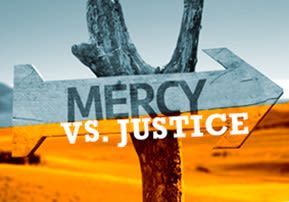
Mercy vs. Justice
In a place of justice, there is no mercy; and in a place of mercy, there is no justice. How does The Creator be simultaneously both just and merciful?

Translated by Rabbi Lazer Brody
When the Torah speaks about creation, it only mentions the Holy Name Elohim, the Name of Divine judgment, which we translate throughout this book as "G-d". Yet, when the Torah mentions the completion of creation, it juxtaposes the Holy Names of Elohim, judgment, and the ineffable four-letter Tetragrammaton yud-hey-vav-hey, the Name of Divine mercy and compassion. We refer to the Tetragrammaton as "Hashem", literally "The Name", for the it is not allowed to be uttered.
The Torah mentions the holy Name Elohim at the beginning to show that The Creator wanted to create the world on a standard of absolute justice, in other words, the moment any creation erred, it would be sentenced immediately. But, The Creator saw that creation could not withstand absolute justice and letter-of-the-law Divine judgment. The Creator therefore had to mitigate Divine judgment with compassion and mercy to enable the universe and all the creations to exist. Therefore, The Creator manifests Himself as Hashem Elohim at the completion of creation to show the Divine combination of strict judgment and mercy.
We're not speaking about some architect or engineer who altered his plans or changed his mind midway through the project. This is The Creator, whose foresight and hindsight are absolute. Nothing surprises Him.  So why didn't The Creator combine judgment and mercy in the initial stage of creation?
So why didn't The Creator combine judgment and mercy in the initial stage of creation?
The truth is that He did. Yet, King David says (Psalm 143:2), "And do not enter into strict judgment with Your servant, for no living creature would be vindicated before You." If King David, Hashem's anointed, felt that no living creature – including himself – could say to Hashem, "I am pure, I am free of sin", then what we can we possibly say? Nonetheless, Hashem wanted to show that it would have been befitting to create the world on an absolute standard of justice, so He only refers to Himself as Elohim in the first passage of the Torah. But, since the world cannot exist on such a lofty level, Hashem had to mitigate the stern judgment with compassion and mercy and for that reason writes Hashem Elohim in the passage we are now discussing.
Hashem does want us to strive to attain the level where we don't veer an iota to the right or left from doing His absolute will. The advantage of on-the-spot punishment when a person does transgress is that the instant atonement prevents the soul from blemishes and assures a continued strong bond with The Creator. Yet, as few people can live like this, Hashem had to dilute the dosage of stern judgment with compassion and mercy.
There is a downside to Hashem's mercy, patience and deferment of punishment; they enable an evildoer to become smug and think that he or she doesn't have to account for their actions. But the Gemara warns (tractate Bava Kama 50a), "Anyone who thinks that The Holy One is acquiescent shall forfeit his entrails, for the Torah says, 'The Rock (Hashem) is perfect in His workings, for all His paths are justice'." Hashem merely doesn't punish on the spot, for if He did, we would be conditioned to good and we would lose our free choice.
Rebbe Natan of Breslev probes the concept in our daily prayers (Weekday Amida), "The King Who loves charity and justice". This sounds odd, for in a place of justice, there is no charity; and in a place of charity, there is no justice. How does The Creator do both simultaneously?
Rebbe Natan explains that justice enables the righteous individual to earn a rightful place in the world to come, but since no individual is capable of perfection, the Creator mitigates the absolute judgments with mercy and Divine compassion. Even when a person suffers, the Creator instills a hidden measure of relief within the suffering, as King David says in Psalm 4:2, "You have relieved me in my distress". A person's misdeeds might trigger subsequent tribulations; but even within those tribulations – the result of Divine judgment, one finds a ray of hope and relief, the result of Divine compassion. We consequently see how the justice is mixed with mercy.
Rebbe Nachman notes (see Likutei Moharan I:116) that Hashem loves justice, but He also loves His people Israel. In fact, His love for Israel is even greater than His love of justice. But, when a person transgresses, Hashem must agree to the Heavenly Court's call for justice, yet Hashem mitigates harsh verdicts and substitutes them for lesser tribulations. As such, it is actually Hashem concealing Himself within the tribulations. So don't worry, Hashem is always with us.


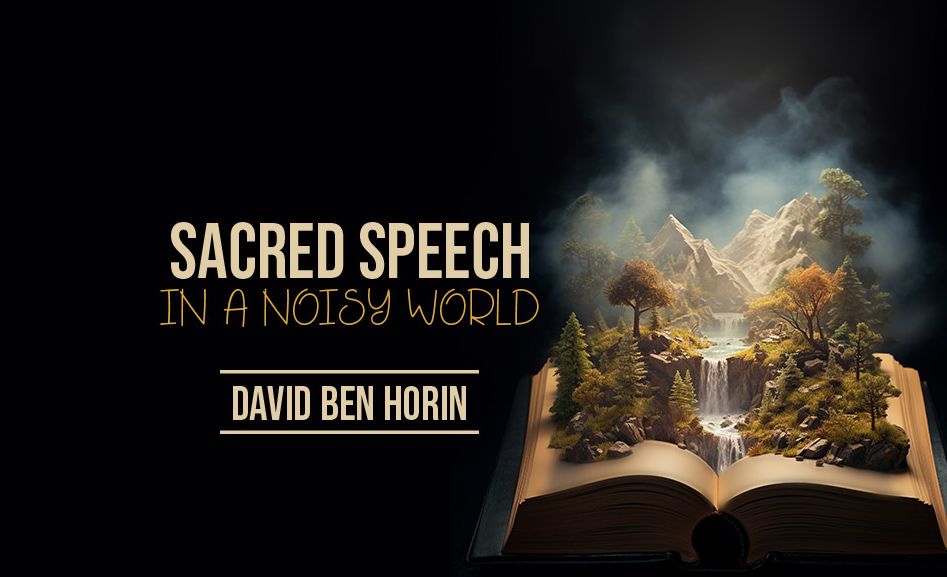
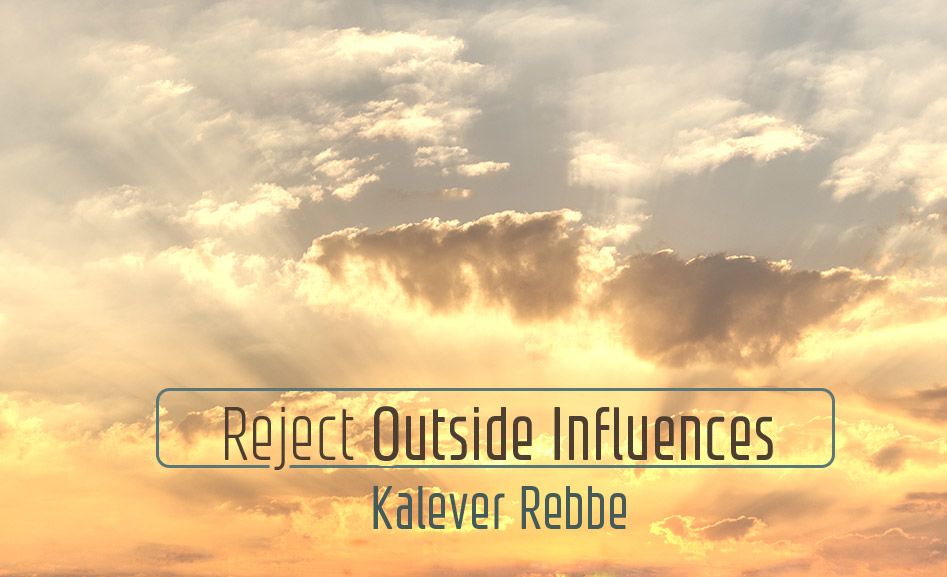
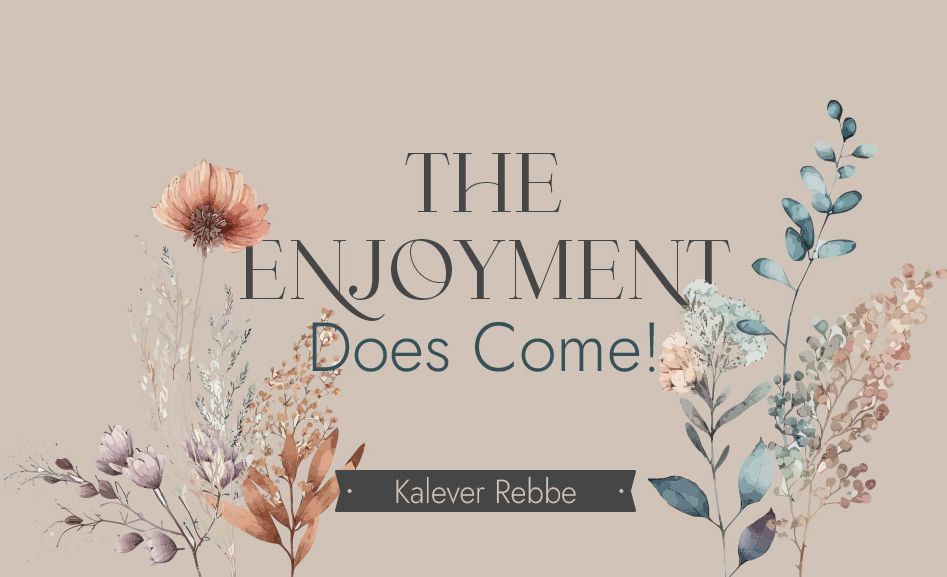
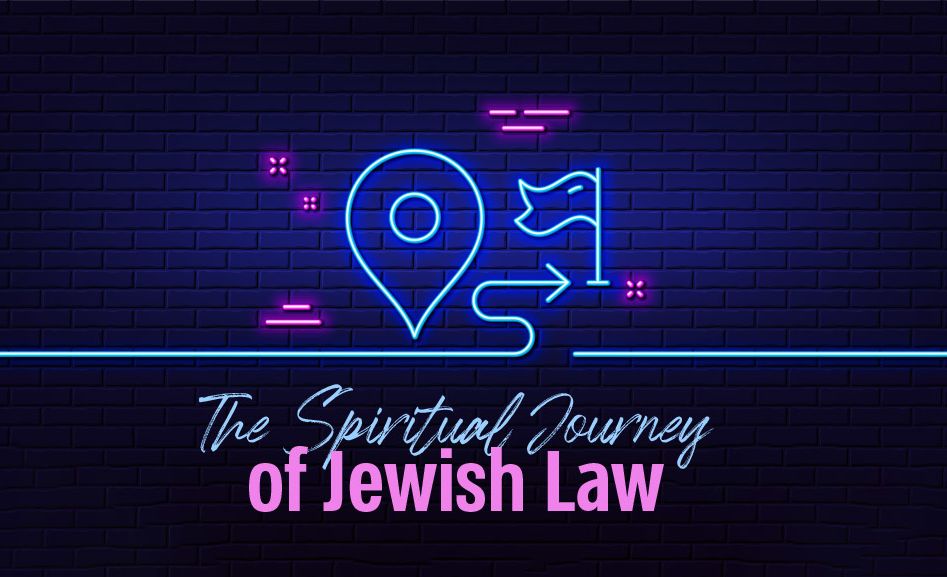





Tell us what you think!
Thank you for your comment!
It will be published after approval by the Editor.